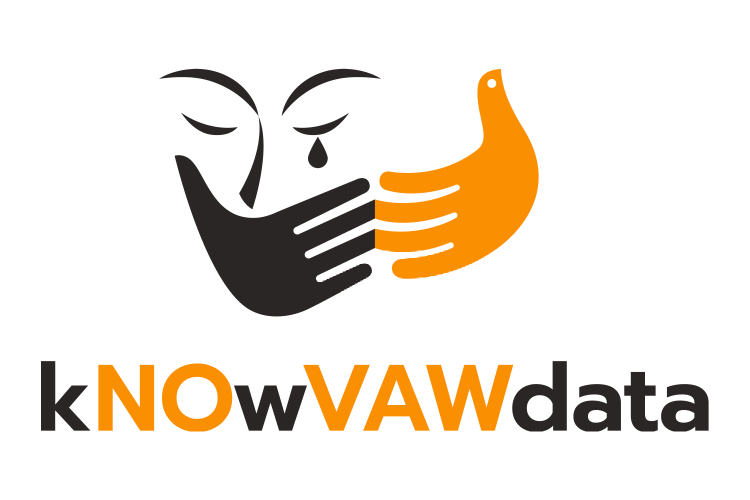Knowledge Hub

The Knowledge Hub provides links to resources supporting the measurement of violence against women and has been funded under the Pacific Spotlight Initiative. While starting with a primary focus on Pacific resources and global resources which are applicable for the Pacific region, the Knowledge Hub will continue under the UNFPA kNOwVAWdata initiative to support global knowledge exchange and a strong community of practice. The strength of this Knowledge Hub is the opportunity to share resources and support all regions of the globe.
If you would like to share links to be added to the Knowledge Hub, please send them to knowvaw-program@unimelb.edu.au.
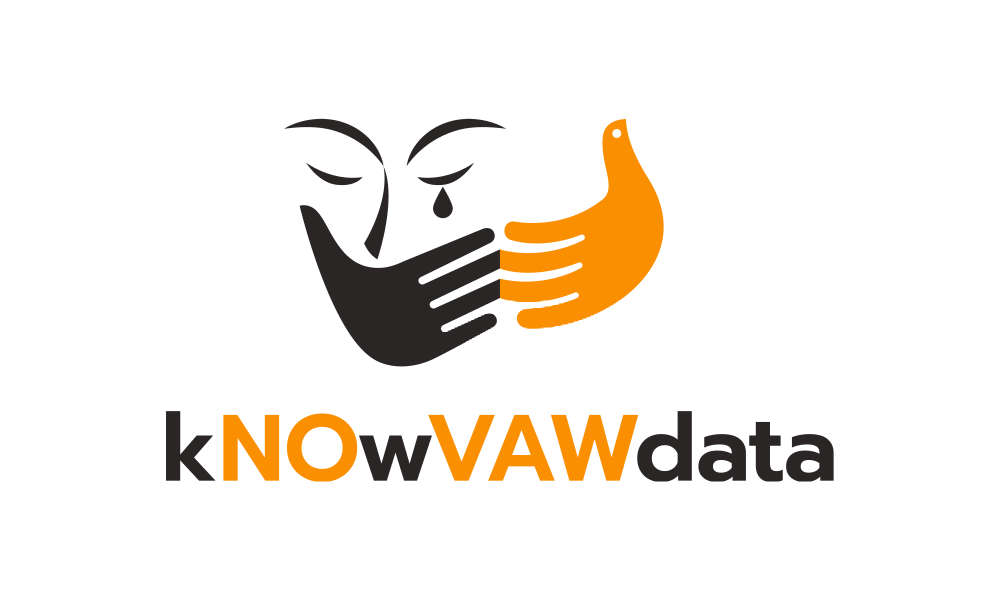
Annual Impact Report 2023 from Women’s Aid
Every year the Women’s Aid Annual Impact Report serves as a harrowing and poignant reminder of the level of domestic violence and abuse against women and children that prevails in homes and relationships across Ireland. Unfortunately, 2023 was no different. This report provides an insight into the coercive and controlling emotional, physical, economic, and sexual abuses inflicted upon women and their children at the hands of current and former intimate partners, whom we supported during just...

New Survey Methodologies in Researching Violence Against Women
This paper assesses the methodologies of the new national surveys of violence against women, including those in the US, Canada, Australia, Finland and the Netherlands, as well as the British Crime Survey. The development of large‐scale quantitative survey methodology so as to be suitable for such a sensitive subject has involved many innovations. The paper concludes with recommendations for further improvements including: the sampling frame, the scaling of both sexual assaults and range of...

Developing a measure of controlling or coercive behaviour
Initial research into new questions aimed at identifying controlling or coercive behaviour. These crimes are less likely to be reported to the police, therefore it is important we find an effective way to measure these offences. This will provide insight for policymakers, service providers and charities.

The Measurement of Domestic Abuse – Redeveloping the Crime Survey for England and Wales
The Crime Survey for England and Wales (CSEW) is a representative population survey that since the early 2000s has provided ongoing measurement of domestic abuse via a dedicated domestic abuse module, with regular publication of headline prevalence and other descriptive data. At the same time the measurement of domestic violence in the CSEW has also been the subject of ongoing debate and critique, in particular whether it is appropriate to use catch-all prevalence measures in the context of...

We are Agents of Change: Adolescent Girls Approaches to Gender-Based Violence Prevention and Response in Middle East and North Africa
This brief outlines adolescent girl-led approaches to GBV prevention and response in Middle East and North Africa including: access to gender-sensitive health information, peer-to-peer awareness in Syria, cross sectoral approaches to child marriage in Yemen and supporting adolescent girls empowerment and agency in Iraq.

UNICEF Communities Care Programme: Somalia Impact Evaluation
The United Nations Children’s Fund (UNICEF) Communities Care: Transforming Lives and Preventing Violence programme is a community-based model for preventing and responding to sexual violence against girls and women in conflict-affected settings. The programme is premised on the idea that while armed conflict causes horrendous suffering for those affected, the disruption it causes may also present an opportunity for positive change in social norms that can contribute to gender equality and...

UNICEF Communities Care Programme: South Sudan Impact Evaluation
The United Nations Children’s Fund (UNICEF) Communities Care: Transforming Lives and Preventing Violence programme is a community-based model for preventing and responding to sexual violence against girls and women in conflict-affected settings. The programme is premised on the idea that while armed conflict causes horrendous suffering for those affected, the disruption it causes may also present an opportunity for positive change in social norms that can contribute to gender equality and...
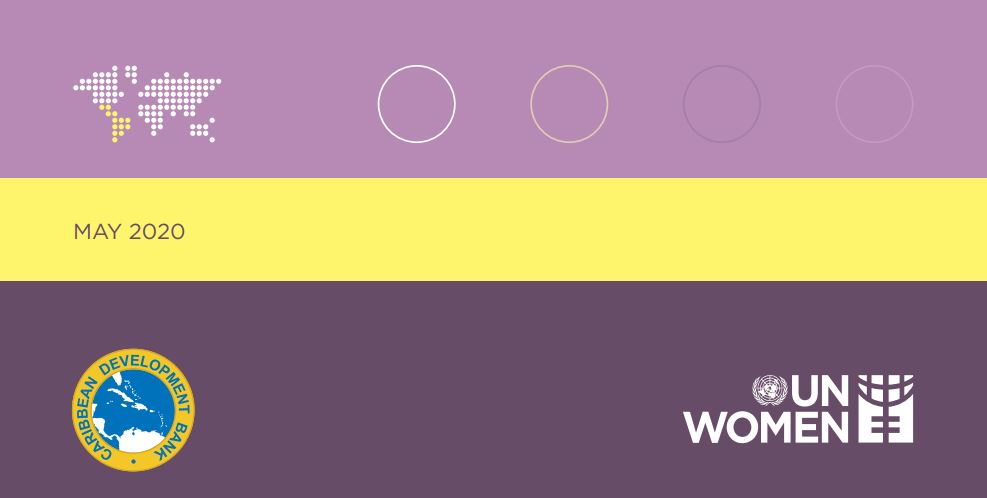
Intimate Partner Violence in Five CARICOM Countries: Findings from National Prevalence Surveys on Violence Against Women (Research Brief)
This research brief focuses on the prevalence of intimate partner violence (IPV) for each of the five countries where data was collected – both lifetime and current prevalence rates of IPV. The focus is on IPV because it is one of the most common types of VAWG. This brief also focuses on the causes and consequences of IPV, including risk factors associated with physical and/or sexual IPV at both the national and regional levels.
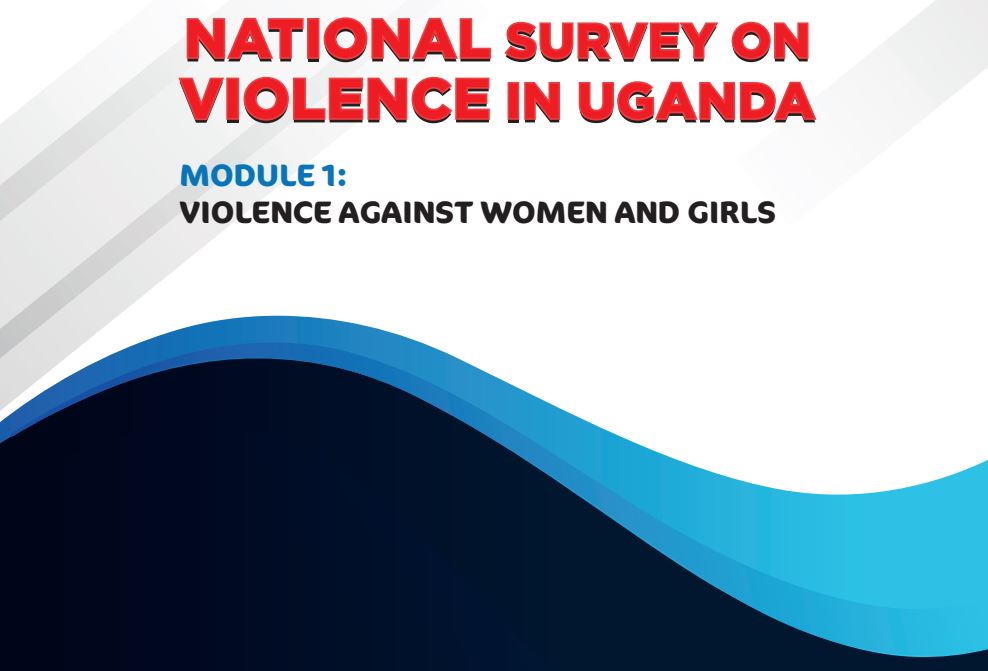
National Survey on Violence in Uganda Module I: Violence Against Women and Girls
The primary objective of the survey on Violence against Women and Girls was to provide up to date estimates of indicators on VAWG. The information collected is intended to assist policy makers and program managers in evaluating and designing programs and strategies for eliminating VAWG in Uganda.
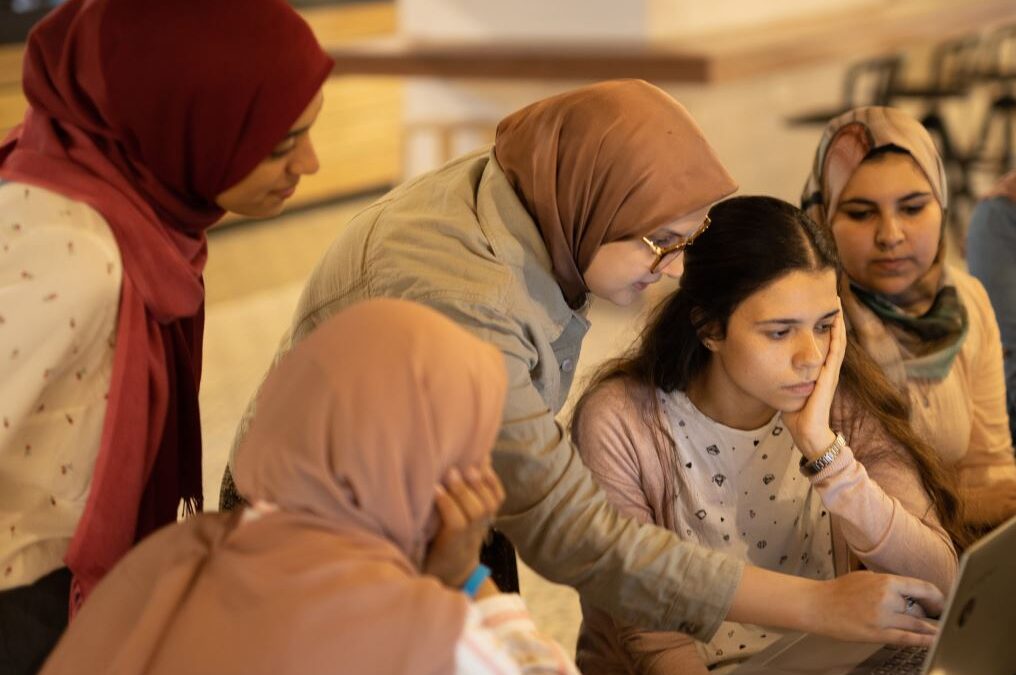
Violence Against Women in the Online Space: Insights from Multi-country Research in the Arab States
To better understand online violence in the Arab States, a subsequent research project explored its prevalence, impact and consequences and the barriers to services and reporting. Three complementary exercises comprised a quantitative web-based survey in eight countries with nearly 12,000 respondents, examining the prevalence, perceptions and implications of online violence; qualitative research to explore experiences of online violence through the lens of civil society organizations, women’s...

Violence Against Women: An EU-wide Survey – Main Results
This report is based on interviews with 42,000 women across the 28 Member States of the European Union (EU). The survey asked women about their experiences of physical, sexual and psychological violence, including incidents of intimate partner violence (‘domestic violence’), and also asked about stalking, sexual harassment, and the role played by new technologies in women’s experiences of abuse. In addition, it asked about their experiences of violence in childhood.

Violence Against Women: An EU-wide Survey – Survey methodology, sample and fieldwork (Technical Report)
This report presents a detailed overview of the research methods used by FRA when collecting survey data on women’s personal experiences of various forms of violence. FRA started to develop the survey through desk research and stakeholder consultations in 2010, followed by a pre-test study in six EU Member States in 2011 to test a draft questionnaire. The full-scale survey in the EU-28 was carried out in 2012.
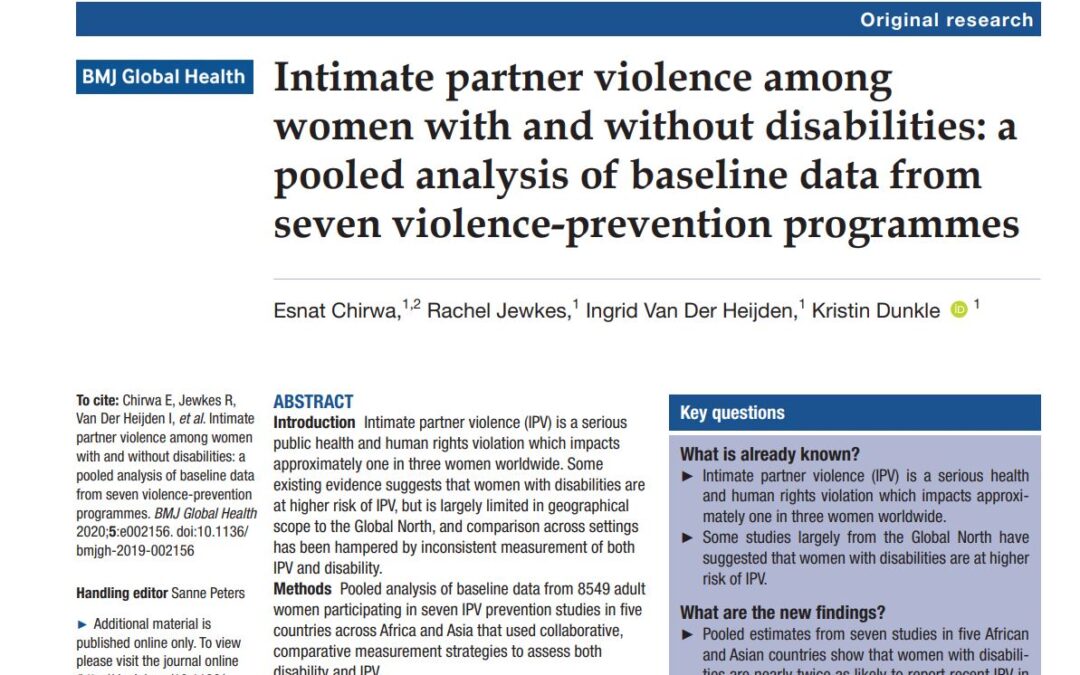
Intimate partner violence among women with and without disabilities: a pooled analysis of baseline data from seven violence-prevention programmes
Pooled analysis of baseline data from 8549 adult women participating in seven IPV prevention studies in five countries across Africa and Asia that used collaborative, comparative measurement strategies to assess both disability and IPV.
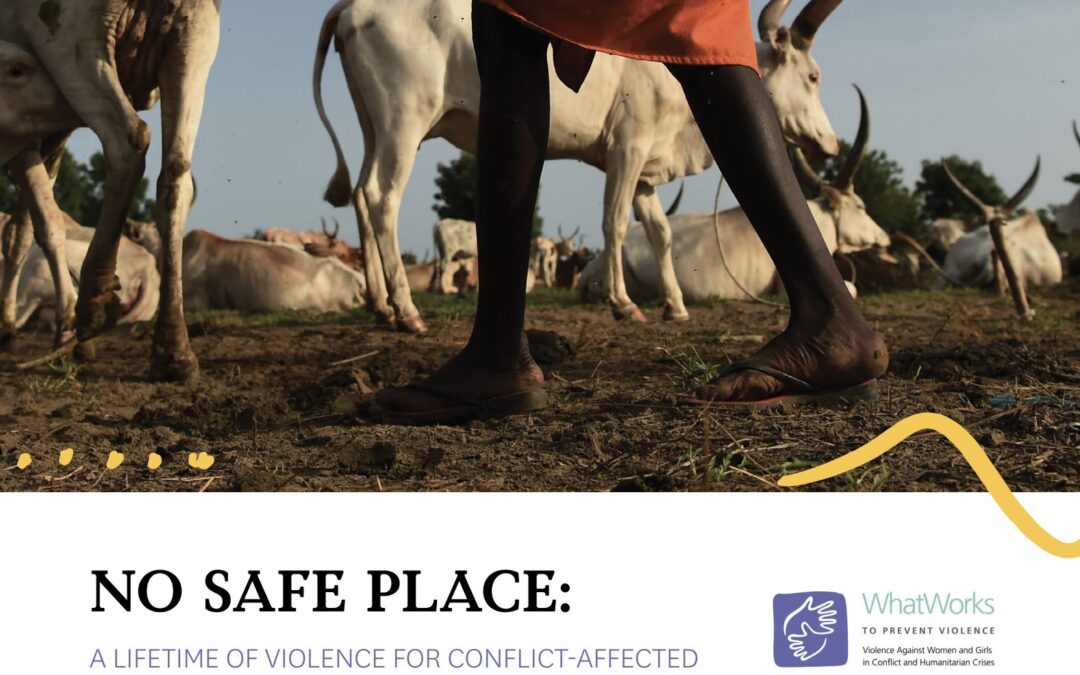
No Safe Place: A Lifetime of Violence for Conflict Affected Women and Girls in South Sudan (Report)
This is the first large-scale research study of violence against women and girls (VAWG) in several areas of South Sudan that have known war and conflict for many years.
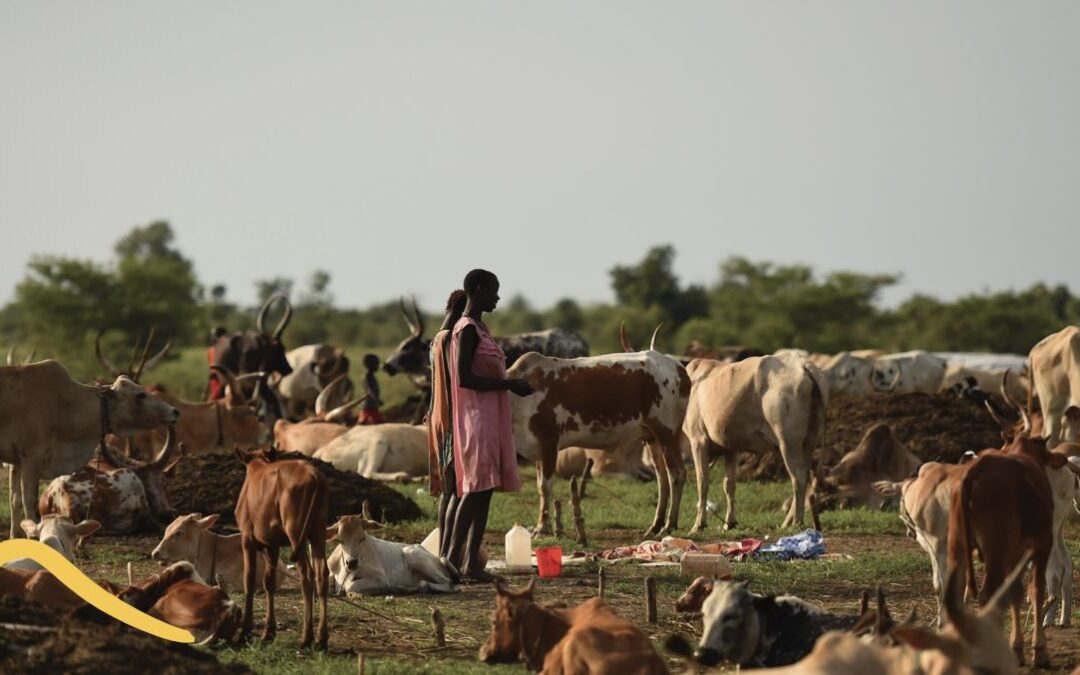
No Safe Place: A Lifetime of Violence for Conflict Affected Women and Girls in South Sudan (Policy Brief)
This brief highlights research aimed at filling substantial gaps in understanding of violence against women and girls (VAWG) in humanitarian settings, including whether or not there is a correlation between increased national conflict and VAWG.
